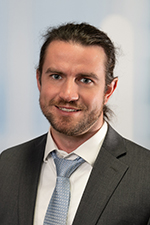ARCHIVED: NOT AVAILABLE FOR CREDIT
GU Syndromic Associations: Case-Based Review and Next Steps After Diagnosis
This lecture will review genitourinary (GU) syndromic associations using real cases as examples. The topics included are von Hippel Lindau, hereditary papillary renal cell carcinoma, fumarate hydratase deficiency/hereditary leiomyomatosis and renal cell carcinoma, and succinate dehydrogenase deficiency. The lecture reviews some of the GU-associated tumors for each syndrome with a particular focus on the guidelines for referral to genetic counseling and further genetic testing. Also included are discussions of challenging immunohistochemistry interpretations and other ancillary tests that may help make these diagnoses or suggest referral for molecular genetic confirmation. At least two nonclassical presentations are also discussed with discussion about the implication of these findings and suggestions for increased rate of detection.
Originally presented on February 8, 2023, in Park City, Utah.
Lecture Presenter
 | Jonathon Mahlow, MD Assistant Professor |
Dr. Mahlow is a staff pathologist at ARUP and an assistant professor of pathology at the University of Utah School of Medicine. He received his MD from Wayne State School of Medicine in Detroit and completed his anatomic and clinical pathology residency training at the Cleveland Clinic Foundation in Cleveland. Subsequently, he completed a fellowship in surgical pathology at the University of Utah. Dr. Mahlow is a member of several professional societies, including the United States and Canadian Academy of Pathology, and the American Society for Clinical Pathology.
Objectives
After this presentation, participants will be able to:
- Review GU cancer syndromes
- Explain morphologic, immunohistochemical, FISH, and other ancillary methods related to syndromic diagnosis/detection
- Review NCCN 2023 genetic testing guidelines, with particular attention to pathologic diagnosis
- Review unusual presentations of rare syndromes
Sponsored by:
University of Utah School of Medicine, Department of Pathology, and ARUP Laboratories
 Site Search
Site Search

